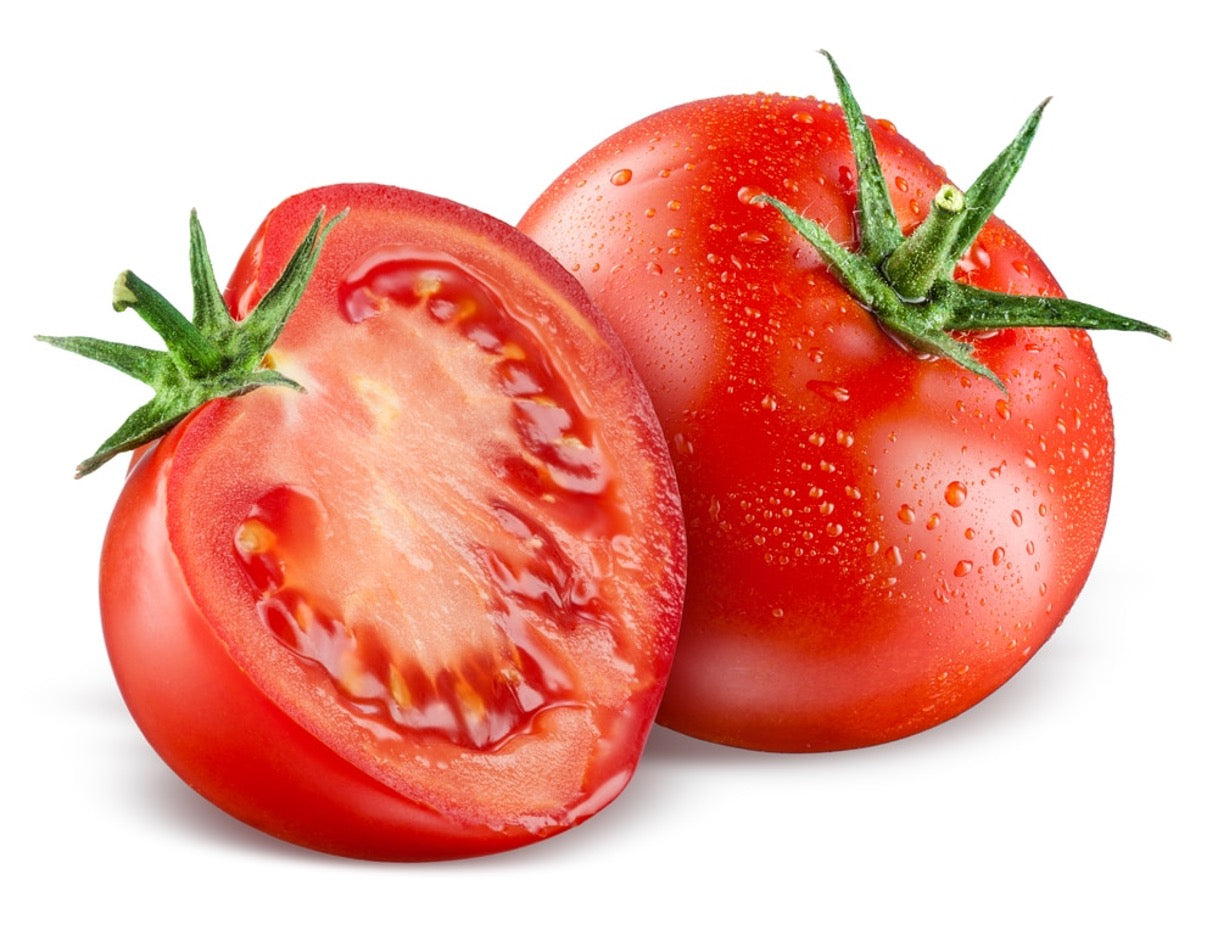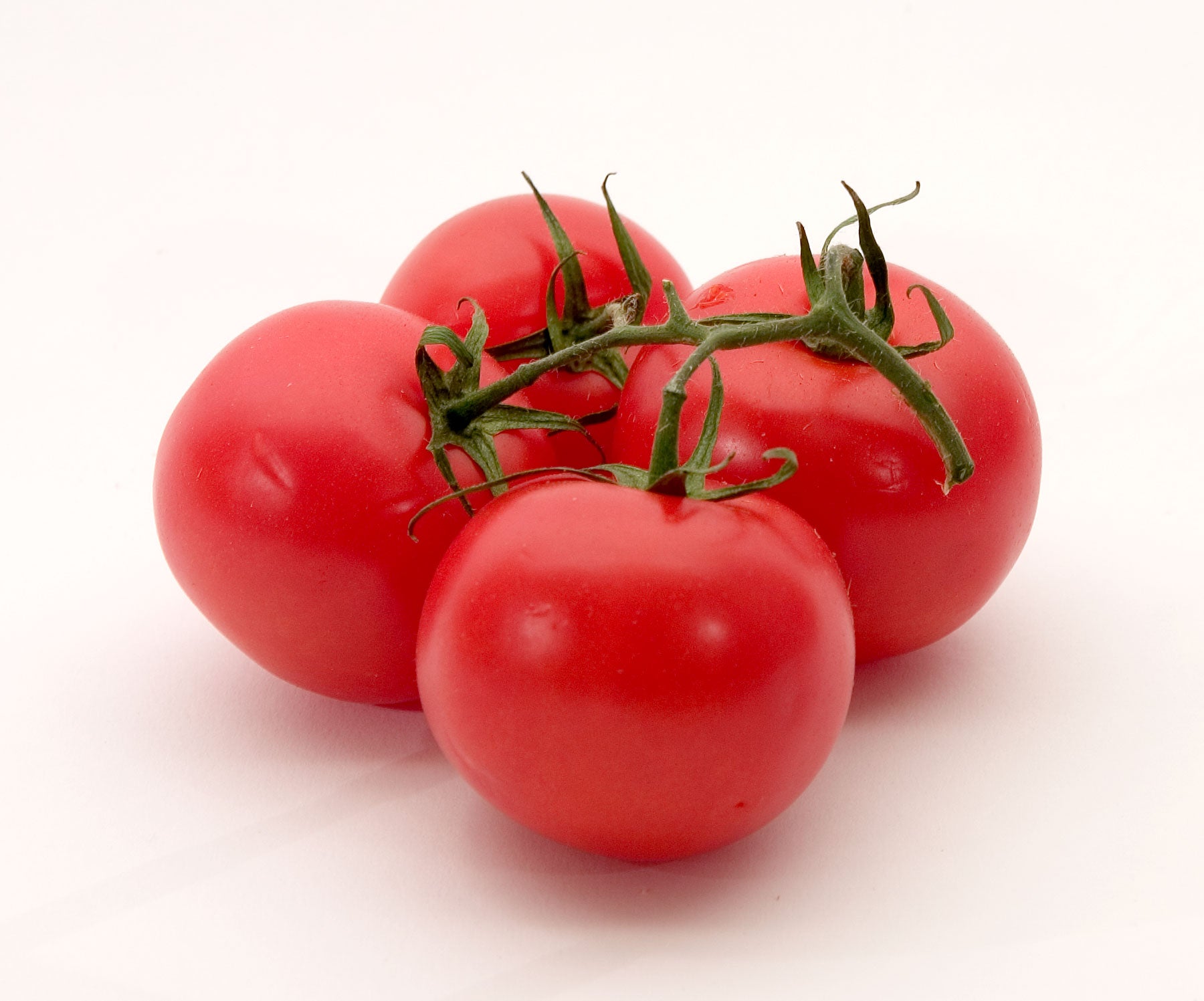Tomato
- Product Weight: 454 g
- Category: Fresh Fruits & Vegetables, Grocery & Gourmet Foods, Vegetables

The tomato is the edible berry of the plant Solanum lycopersicum, commonly known as a tomato plant. The species originated in western South America and Central America. The Nahuatl word tomatl gave rise to the Spanish word tomate, from which the English word tomato derived.
The water content of tomatoes is around 95%. The other 5% consists mainly of carbohydrates and fiber.
Here are the nutrients in a small (100-gram) raw tomato:
- Calories: 18
- Water: 95%
- Protein: 0.9 grams
- Carbs: 3.9 grams
- Sugar: 2.6 grams
- Fiber: 1.2 grams
- Fat: 0.2 grams
Carbs
Carbs comprise 4% of raw tomatoes, which amounts to fewer than 5 grams of carbs for a medium specimen (123 grams).
Simple sugars, such as glucose and fructose, make up almost 70% of the carb content.
Fiber
Tomatoes are a good source of fiber, providing about 1.5 grams per average-sized tomato.
Most of the fibers (87%) in tomatoes are insoluble, in the form of hemicellulose, cellulose, and lignin.
SUMMARYFresh tomatoes are low in carbs. The carb content consists mainly of simple sugars and insoluble fibers. These fruits are mostly made up of water.
Tomatoes are a good source of several vitamins and minerals:
- Vitamin C. This vitamin is an essential nutrient and antioxidant. One medium-sized tomato can provide about 28% of the Reference Daily Intake (RDI).
- Potassium. An essential mineral, potassium is beneficial for blood pressure control and heart disease prevention.
- Vitamin K1. Also known as phylloquinone, vitamin K is important for blood clotting and bone health.
- Folate (vitamin B9). One of the B vitamins, folate is important for normal tissue growth and cell function. It’s particularly important for pregnant women.
The tomato is the edible berry of the plant Solanum lycopersicum, commonly known as a tomato plant. The species originated in western South America and Central America. The Nahuatl word tomatl gave rise to the Spanish word tomate, from which the English word tomato derived.
The water content of tomatoes is around 95%. The other 5% consists mainly of carbohydrates and fiber.
Here are the nutrients in a small (100-gram) raw tomato:
- Calories: 18
- Water: 95%
- Protein: 0.9 grams
- Carbs: 3.9 grams
- Sugar: 2.6 grams
- Fiber: 1.2 grams
- Fat: 0.2 grams
Carbs
Carbs comprise 4% of raw tomatoes, which amounts to fewer than 5 grams of carbs for a medium specimen (123 grams).
Simple sugars, such as glucose and fructose, make up almost 70% of the carb content.
Fiber
Tomatoes are a good source of fiber, providing about 1.5 grams per average-sized tomato.
Most of the fibers (87%) in tomatoes are insoluble, in the form of hemicellulose, cellulose, and lignin.
SUMMARYFresh tomatoes are low in carbs. The carb content consists mainly of simple sugars and insoluble fibers. These fruits are mostly made up of water.
Vitamins and minerals
Tomatoes are a good source of several vitamins and minerals:
- Vitamin C. This vitamin is an essential nutrient and antioxidant. One medium-sized tomato can provide about 28% of the Reference Daily Intake (RDI).
- Potassium. An essential mineral, potassium is beneficial for blood pressure control and heart disease prevention.
- Vitamin K1. Also known as phylloquinone, vitamin K is important for blood clotting and bone health.
- Folate (vitamin B9). One of the B vitamins, folate is important for normal tissue growth and cell function. It’s particularly important for pregnant women.


































